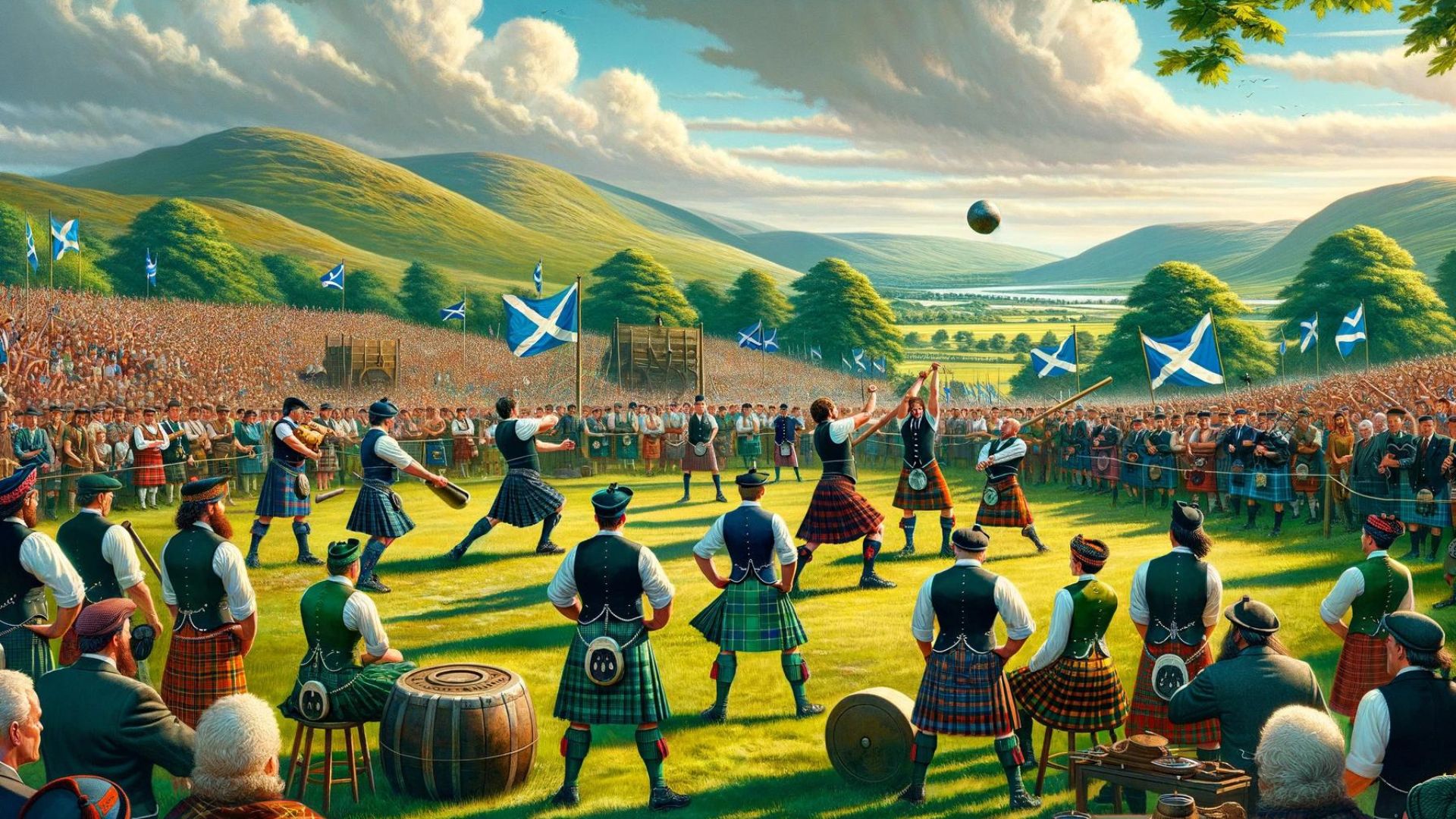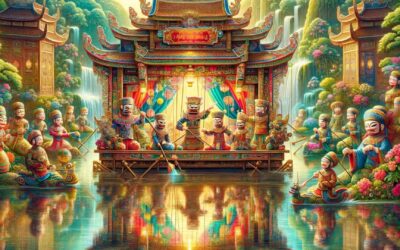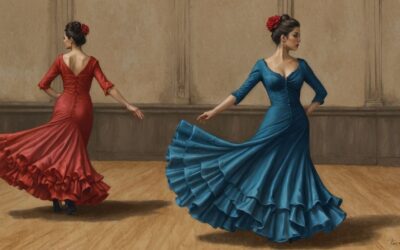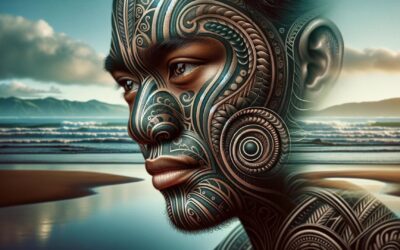Picture this: rolling hills dotted with heather, the haunting melody of bagpipes filling the air, men with incredible strength competing in ancient contests. This is the magic of the Highland Games.
The Origins
Long before written records, Highland clans would gather, boasting their finest warriors, musicians, and dancers. These were a mix of practical tests and community celebrations. Think back to the 11th century: King Malcolm Canmore is said to have held contests to find the fastest runners for his army of messengers!
By the Victorian era (1800s), the Games became more structured events, often with royal patronage. As Scots emigrated around the globe, they took this tradition with them, which is why Highland Games are held worldwide today.
What Happens at the Games?
While each gathering is unique, you’re likely to see:
- Heavy Athletics: The classic stuff! Tossing the caber (like a telephone pole), putting the stone (think shot put with a rock), and the hammer throw are feats of raw power.
- Highland Dancing: Graceful and intricate dances set to traditional bagpipe music, often in colorful costumes.
- Piping Competitions: Solo pipers and entire pipe bands showcase their skill. Did you know bagpipes were once considered instruments of war?
- Local Flair: From sheepdog trials to food vendors serving Scottish treats, each Games reflects its local community.
More Than Just Sports
Highland Games are about celebrating Scottish heritage. It’s where history lives:
- Fashion: Kilts and tartan patterns represent specific clans and families, passed down through generations.
- Clans: Many Games feature Clan tents, where you can learn about your ancestry or just appreciate the history.
- Preserving Gaelic: While not spoken widely today, hearing Gaelic announcements and songs keeps the language alive.
The Spirit of the Highlands
Whether you’re witnessing feats of strength or the delicate footwork of dancers, there’s an undeniable spirit to the Games. It’s about community, a love for the wild Scottish landscape, and carrying on centuries of tradition while having a grand time.
Action Point
- Are there Highland Games held near you? Search online – even small towns often host events!
- Can’t attend in person? Explore videos of iconic Games like the Braemar Gathering on YouTube to soak in the atmosphere.
- Look beyond the sports: find a Scottish music playlist or learn a bit about clans to fully immerse yourself!
A trip to the Highland Games is like stepping into a living history book. Even if you don’t have a drop of Scottish blood, the energy, the skill, and the deep sense of tradition are sure to leave a lasting impression.
Why Should You Care?
- Appreciating Diverse Cultures: The Highland Games offer a window into Scotland’s unique traditions, celebrating history, arts, and community.
- Witnessing Human Strength and Skill: Watching Highland Games showcases athletic prowess and the enduring appeal of ancient sports.
- Travel Inspiration: Learning about the Games might spark a desire to explore Scotland, experiencing its landscapes, music, and history firsthand.
Key Takeaways
- Highland Games began as practical tests of strength and skill for Highland clans in Scotland.
- The Games evolved into organized festivals celebrating Scottish culture, including sports, music, dancing, and local traditions.
- Key events include heavy athletics (caber toss, etc.), Highland dancing, and piping competitions.
- Highland Games are held worldwide, carried by Scottish emigrants and embraced by all who love their unique spirit.
Keywords
- Highland Games: Traditional Scottish festivals featuring sporting events, music, dancing, and cultural displays.
- Scotland: A country in Northern Europe, part of the United Kingdom, known for its rugged landscapes and rich history.
- Highlands: Mountainous region of Scotland, where Highland Games originated.
- Bagpipes: Scottish wind instrument with a distinctive, powerful sound, central to Highland Games.
- Kilt: Traditional knee-length pleated skirt worn by men in Scotland, often with tartan patterns representing specific clans.
- Caber toss: Classic Highland Games event where athletes toss a long, heavy log end over end for distance.
- Clans: Historical Scottish family groups with shared ancestry and distinct tartans.
- Gaelic: Celtic language spoken in parts of Scotland, preserved through song and events at the Games.
- Tartan: Woven fabric patterns in specific colors and sets, traditionally representing different Scottish clans.
- Braemar Gathering: One of the most famous and prestigious Highland Games in Scotland, often attended by the British Royal Family.
Frequently Asked Questions
- Can anyone compete in the Highland Games? While some events are reserved for seasoned professionals, many Games have amateur categories open to the public.
- Do I need to be Scottish to enjoy the Games? Absolutely not! People of all backgrounds attend and appreciate the spectacle and cultural immersion.
- When and where is the best time to see Highland Games? Games happen throughout spring, summer, and fall. Search regional tourism websites for schedules in Scotland or near you.
Myth Buster
- Myth: You have to be incredibly strong to enjoy the Games.
- Reality: While the heavy athletics are impressive, there’s something for everyone: piping, dancing, food, history, and a fantastic social atmosphere.
Let’s Talk!
- Have you ever been to a Highland Games or similar cultural festival? Tell us about it!
- If you could compete in one Highland Games event, which would you choose?
- Besides Scotland, where else in the world would you like to experience a unique cultural celebration?
Share your thoughts in the comments below!












0 Comments